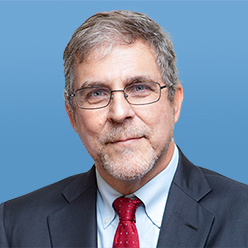The continued civil unrest in Iran raises the possibility of dramatic political changes in the Islamic Republic. The Trump administration has said that it is time for a change in Iran. The question is: How can the United States best help that change come about?
Direct, overt intervention is off the table, barring some form of unseen calamity. The uprising in Iran is an organic, grassroots movement and should retain that character so it will be legitimate in the eyes of the Iranian people and the world. There is still memory of the 1953 coup in which the CIA played a role in overthrowing the government of Prime Minister Mohammad Mosaddegh and giving power to Shah Mohammad Reza Pahlavi. Even though some protesters are calling for a return of the royal family, this would not be the way to accomplish it.
On the other end of the scale, former Obama administration officials are counseling silence, which was the strategy they pursued during the 2009 "Persian Spring" uprising. They fear that too high of an American profile will give the regime the opportunity to claim the United States is behind the movement and blunt the protest's momentum by telling the Iranian people that they are being manipulated. But the regime would say this regardless, and in fact has already attributed the protests to the influence of shadowy "outside forces." And silence can also be read as consent should the mullahs contemplate pursuing a more vigorous crackdown. We can see the results of this approach from 2009, though it should be noted that the Obama White House did not want to see the regime change, so in that respect President Obama's lack of energetic support for the protests fit right in with his policy objectives.
U.N. Ambassador Nikki Haley explicitly rejected an Obama-style approach in a speech Tuesday, in which she said "we must not be silent" on Iran. "The people are crying out for freedom. All freedom-loving people must stand with their cause. The international community made the mistake of failing to do that in 2009. We must not make that mistake again." The U.S. is calling for an emergency meeting of the Security Council to discuss the unrest.
The Trump administration would be happy to see the protests escalate into a revolutionary situation, and has offered various types of encouragement. President Trump has been active on Twitter:
The protesters should understand that any new government in Iran would have an opportunity to start fresh with the United States and that Washington would be eager to pursue building a productive business relationship with the country. There should be no mistake that political change will lead quickly to beneficial economic ties with the outside world, an end to sanctions and a renewed spirit of goodwill towards Tehran.
Likewise, the United States should reinforce its message to the regime that "the world is watching." Iranian leaders need to understand clearly and unambiguously that large-scale violence against the protests will be met with new sanctions, international investigations and whatever legal and judicial responses are possible. The United States will not stand by and watch this spark of freedom be brutally snuffed out without taking some form of action.
There is also room for private initiatives to support the protests. For example, Israeli citizens have been sending video messages encouraging the demonstrators and promoting good will between the two countries. The regime has clamped down on social media and internet access to thwart communications in and out of the country, so these expressions of support may have limited exposure. However, the United States could help counter this communications crackdown by providing Iranians with access to satellites and other forms of communications relays to help get the word out. This would be a non-intrusive way for the government to assist the protesters while not directly intervening.
It also illustrates what the fight is all about: namely, freedom. The mullahs want desperately to disconnect their country from the world while they crack down on the protesters. The United States can help make sure that whatever happens, the world will indeed be watching, waiting and ready to help.
